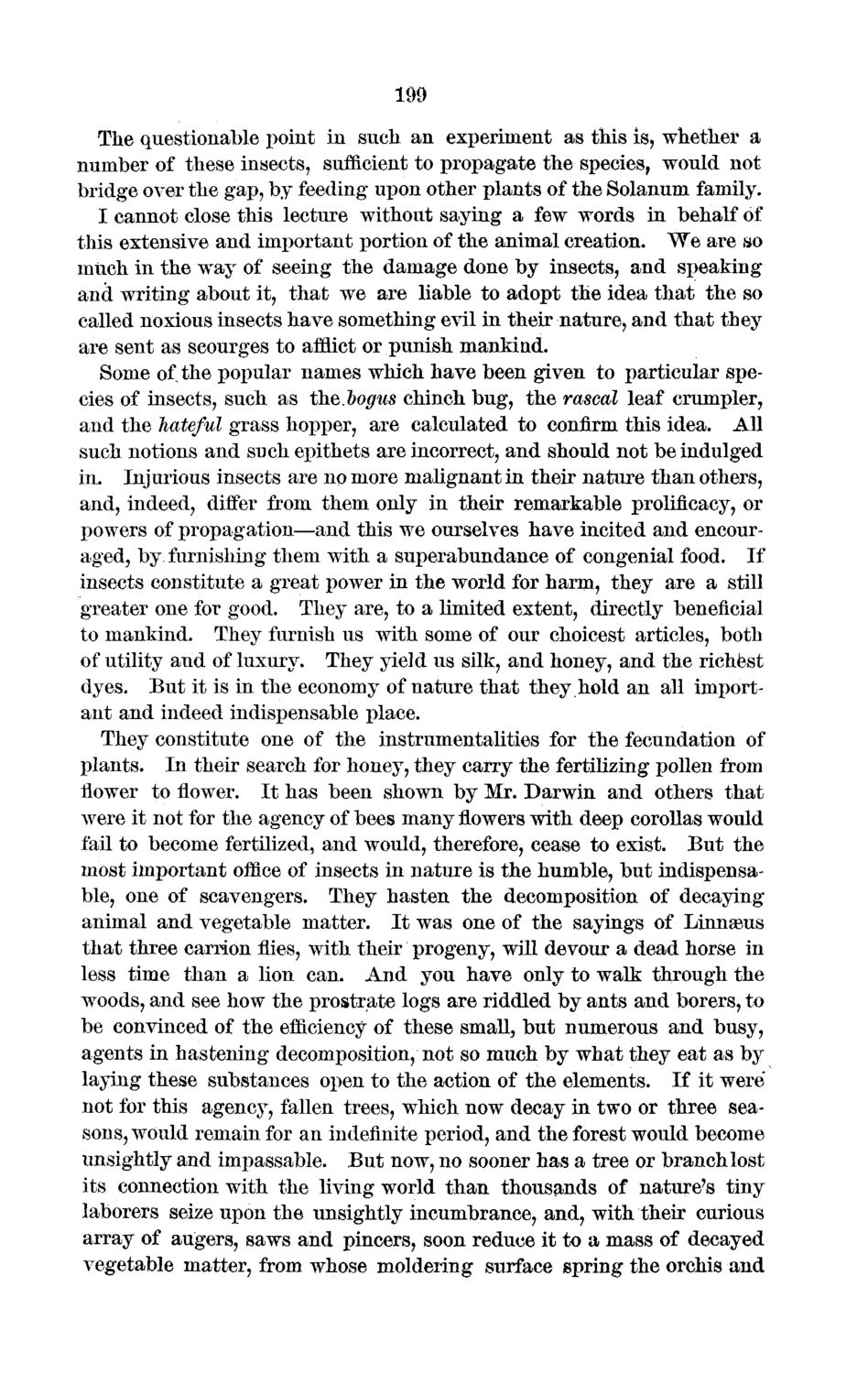| |
| |
Caption: Board of Trustees Minutes - 1872
This is a reduced-resolution page image for fast online browsing.

EXTRACTED TEXT FROM PAGE:
190 The questionable point in such an experiment as this is, whether a number of these insects, sufficient to propagate the species, would not bridge over the gap, by feeding upon other plants of the Solanum family. I cannot close this lecture without saying a few words in behalf of this extensive and important portion of the animal creation. We are so much in the way of seeing the damage done by insects, and speaking and writing about it, that we are liable to adopt the idea that the so called noxious insects have something evil in their nature, and that they are sent as scourges to afflict or punish mankind. Some of the popular names which have been given to particular species of insects, such as the.bogus chinch bug, the rascal leaf crumpler, and the hateful grass hopper, are calculated to confirm this idea. All such notions and such epithets are incorrect, and should not be indulged in. Injurious insects are no more malignant in their nature than others, and, indeed, differ from them only in their remarkable prolificacy, or powers of propagation—and this we ourselves have incited and encouraged, by furnishing them with a superabundance of congenial food. If insects constitute a great power in the world for harm, they are a still greater one for good. They are, to a limited extent, directly beneficial to mankind. They furnish us with some of our choicest articles, both of utility and of luxury. They yield us silk, and honey, and the richest dyes. But it is in the economy of nature that they hold an all important and indeed indispensable place. They constitute one of the instrumentalities for the fecundation of plants. In their search for honey, they carry the fertilizing pollen from flower to flower. It has been shown by Mr. Darwin and others that were it not for the agency of bees many flowers with deep corollas would fail to become fertilized, and would, therefore, cease to exist. But the most important office of insects in nature is the humble, but indispensable, one of scavengers. They hasten the decomposition of decaying animal and vegetable matter. I t was one of the sayings of Linnaeus that three carrion flies, with their progeny, will devour a dead horse in less time than a lion can. And you have only to walk through the woods, and see how the prostrate logs are riddled by ants and borers, to be convinced of the efficiency of these small, but numerous and busy, agents in hastening decomposition, not so much by what they eat as by laying these substances open to the action of the elements. If it were not for this agency, fallen trees, which now decay in two or three seasons, would remain for an indefinite period, and the forest would become unsightly and impassable. But now, no sooner has a tree or branch lost its connection with the living world than thousands of nature's tiny laborers seize upon the unsightly incumbrance, and, with their curious array of augers, saws and pincers, soon reduce it to a mass of decayed vegetable matter, from whose moldering surface spring the orchis and
| |